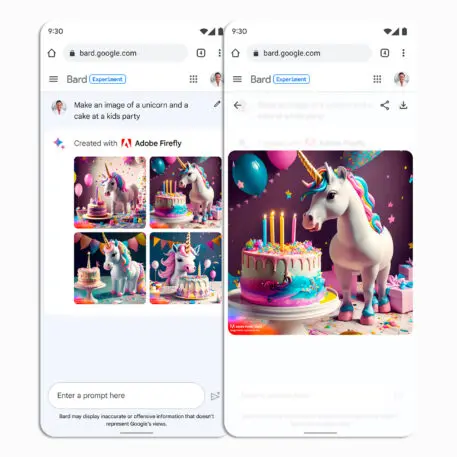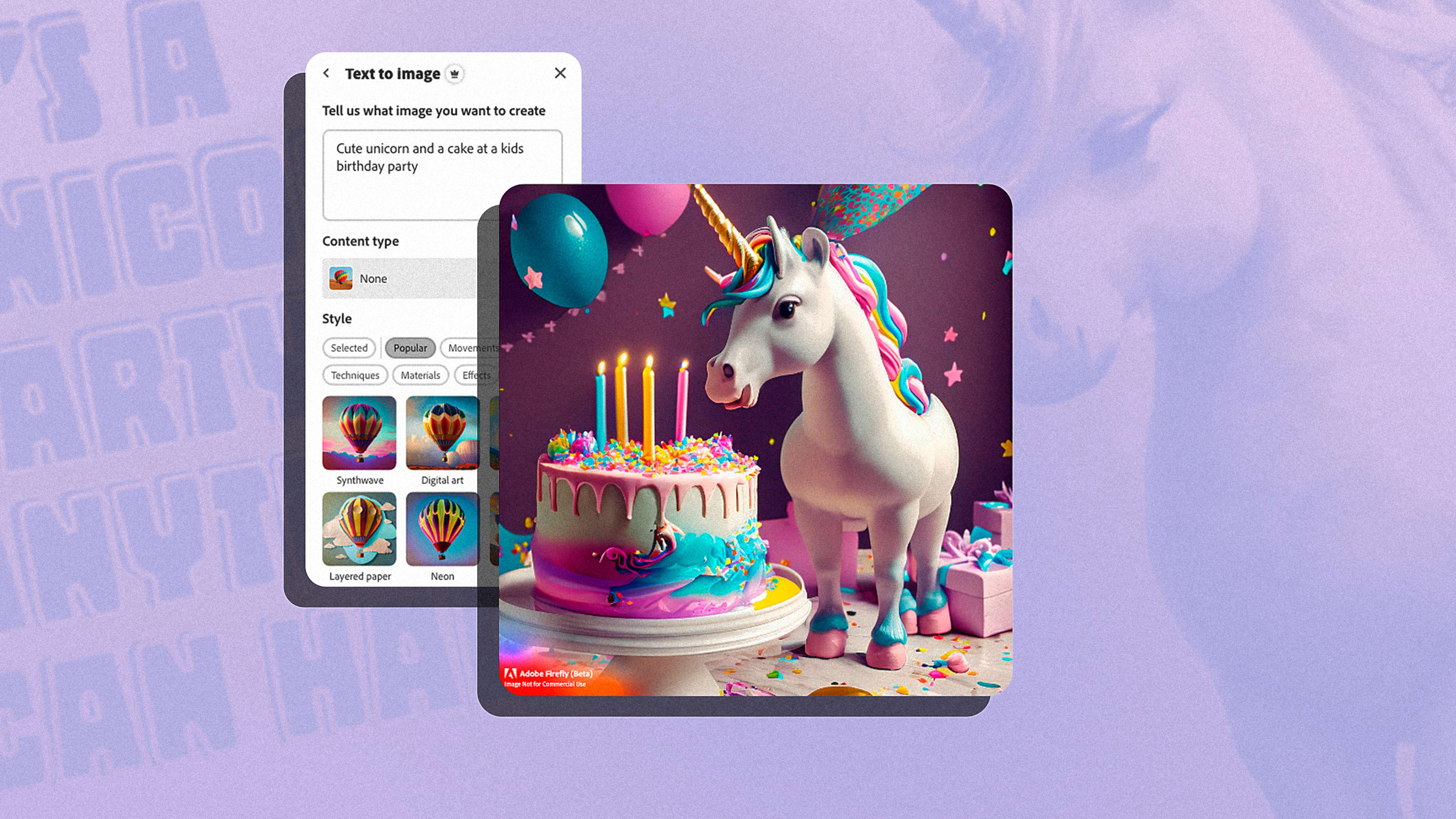Google Bard just got a new powerful ally to fight against Microsoft and OpenAI in the generative artificial intelligence wars. It will add Adobe’s Firefly to Bard, Google’s experimental conversational AI that competes with the Bing-ified and regular versions of ChatGPT.
Firefly is Adobe’s generative AI for synthesizing images à la DALL-E, Midjourney, and Stable Diffusion. It will now be available straight from Bard. You just need to write your prompt in the chatbot and Firefly will conjure your vision in seconds. It is that simple, according to Adobe.

The company also says that Bard users will be able to further edit the resulting image, modifying it and also incorporating it into designs using another of its tools right from the chatbot: Adobe Express, a creative suite that allows users to quickly create content like social posts, videos, flyers or logos.
In other words: Not only will Bard be going head to head against Microsoft and OpenAI but also against Canva, which has been incorporating its own generative AI arsenal to its graphic suite for months now. Earlier this year, Canva added Magic Write—its ChatGPT-style text generator—and its own image generator based on Stability AI’s Stable Diffusion generative AI, as well as many other AI-powered tools to automate the creation of everything from flyers to presentations.
If your head is spinning, you are not alone. This game of crisscross alliances is so dizzying that it’s starting to feel like a game of Risk.
The ethical advantage
There’s something unique about Google and Adobe’s play: The ethical aspect. Google explains that “unlike any other Generative AI tool available today, Firefly is designed to generate images that are safe to use in commercial settings once the model is out of public beta, free from copyrighted materials like popular cartoon characters and branded content.”
The secret to Adobe’s sauce is that Firefly is trained on hundreds of millions of professional-grade, licensed images in Adobe Stock, which is a critical aspect in obtaining not only high-quality images but material that respects copyright owners. Indeed, we know that Stability, Midjourney, and OpenAI all use non-copyrighted material scraped from the Internet.
In an email sent to Fast Company earlier this year, a DALL-E’s spokesperson admitted that “hundreds of millions of images” were licensed from Shutterstock, while others “came from publicly available sources.” DALL-E won’t specify if it actually has any rights to those internet-scraped images. We know that both Midjourney and Stability have already been sued for scraping copyrighted images from the internet; two of the many copyright lawsuits affecting generative AI at this moment (Microsoft and OpenAI are also the target of a separate copyright-infringement case).
Adobe, however, claims to be 100% safe from this problem. Which means that if you use Bard and Firefly, you or your company will be free of any potential copyright problems down the line—a very solid argument on Google and Adobe’s side.
The other part of the unique proposition that Adobe brings to the AI wars is the Content Authenticity Initiative, an open-source technology that aims to “bring transparency to the images generated via Firefly in Bard.” According to the company, every content created in Bard using Firefly will have “content credentials” attached, meaning that it will identify them as AI content in its internal metadata and show which model actually created it.
While these labels could be erased by able hands, it is a good step forward that will protect users of these technologies, human content creators, and society as a whole, whose very existence is threatened by the proliferation of credible fake content and its potential use by bad actors.
Recognize your brand’s excellence by applying to this year’s Brands That Matter Awards before the early-rate deadline, May 3.
